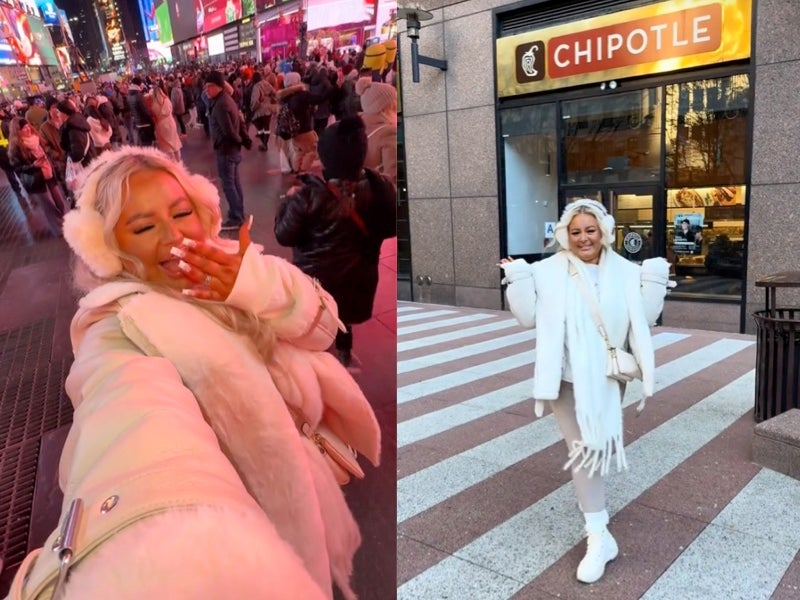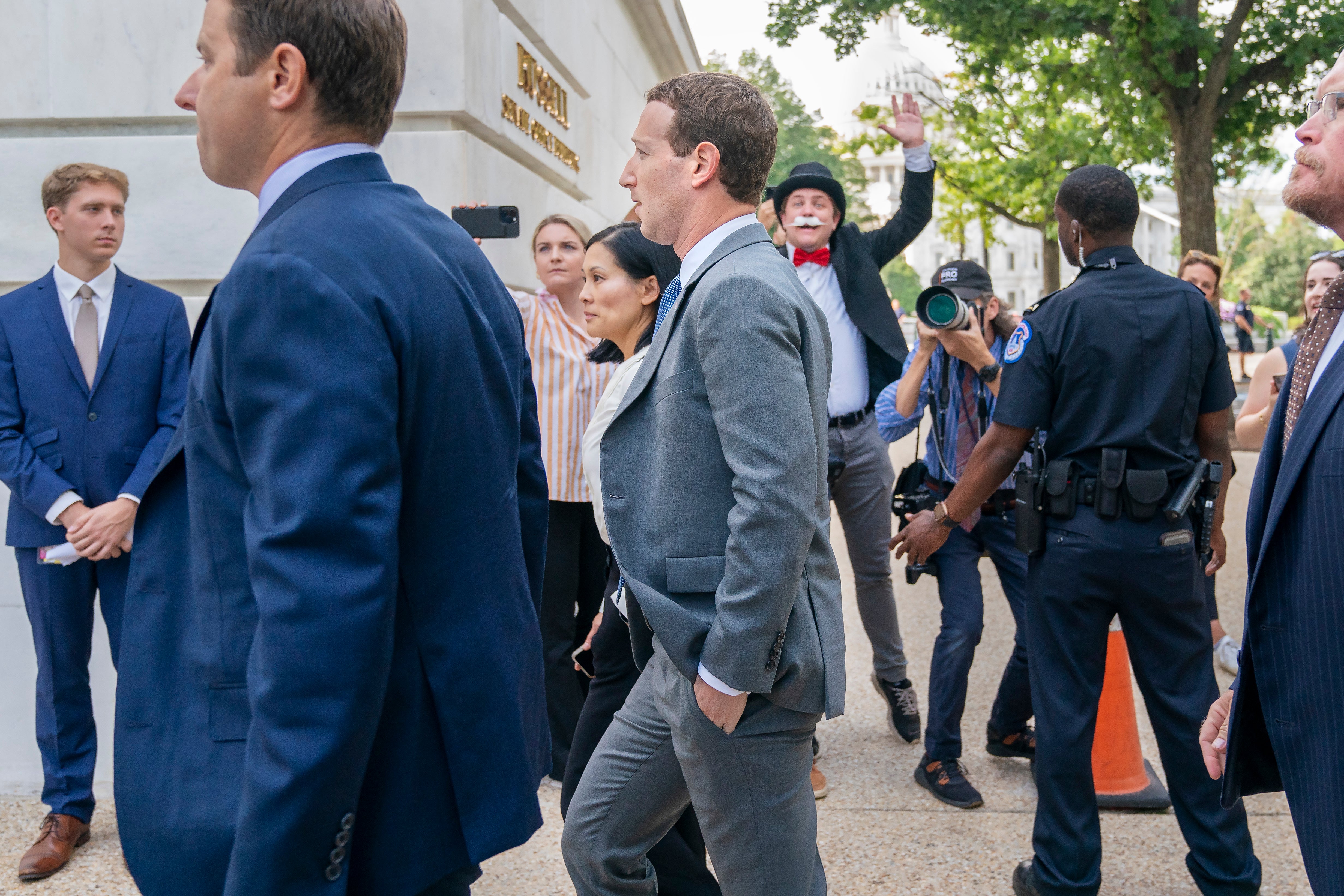What happens if the US bans TikTok?
TikTok wouldn’t simply vanish off your smartphone – but in the long term, banning the Chinese video app could rip the heart out of American youth culture, writes Io Dodds


Your support helps us to tell the story
From reproductive rights to climate change to Big Tech, The Independent is on the ground when the story is developing. Whether it's investigating the financials of Elon Musk's pro-Trump PAC or producing our latest documentary, 'The A Word', which shines a light on the American women fighting for reproductive rights, we know how important it is to parse out the facts from the messaging.
At such a critical moment in US history, we need reporters on the ground. Your donation allows us to keep sending journalists to speak to both sides of the story.
The Independent is trusted by Americans across the entire political spectrum. And unlike many other quality news outlets, we choose not to lock Americans out of our reporting and analysis with paywalls. We believe quality journalism should be available to everyone, paid for by those who can afford it.
Your support makes all the difference.With every passing day, the US government inches closer to doing something unprecedented: banning a social media app used by an estimated 170 million Americans each month.
But what would happen next? Well, TikTok won’t suddenly vanish off your smartphone, but it will reportedly stop functioning. The company is preparing to “go dark” in the U.S., with all access to creating, viewing and sharing content (and the beloved For You page) gone— unless someone decides to throw it a last-minute lifeline.
On Wednesday December 18, the U.S. Supreme Court agreed to hear TikTok's challenge to the bipartisan 2024 law that would force its Chinese owner ByteDance to sell the platform to a U.S. company by January 10 or see it banned entirely.
Backers of the law argue that ByteDance's ownership gives the Chinese government a potential backdoor into the private information of its U.S. users, as well as a powerful covert propaganda tool.
TikTok and its supporters argue that the company has already made efforts to wall its U.S. users' data off from ByteDance, and that banning it now would infringe on free speech and impact the livelihoods of millions of people.
Let’s assume the Supreme Court doesn’t stop the ban. Let’s assume Trump doesn’t stop it either (although he’s trying: last week he asked SCOTUS to block the ban).
In that case, what should we expect if and when the U.S. government finally pulls the trigger?
How the TikTok ban will work
First things first: the law that Congress passed doesn't make it a crime for you to use TikTok, or to have the app on your phone.
Instead, it forces intermediary companies such as Apple and Google – which control the iOS and Android app stores respectively – to stop providing access to TikTok.
"It shall be unlawful for an entity to distribute, maintain, or update – or enable the distribution, maintenance, or updating of – a foreign adversary controlled application," the law states.
Entities that violate this law can be fined by $5,000 per user who was illegally permitted to access or update the app. With TikTok's 170 million users, that would be a maximum of $8.5 billion.
Once this happened, the TikTok app would probably stay on your phone if you already have it installed. But nobody would be able to download the app anew – at least, not officially. (More on that later.)
The law also bans U.S. companies from providing TikTok with web hosting or cloud computing services, which could make it difficult or at least slower to access from within the States.
For now, there doesn’t seem to be anything in the law that would force U.S. internet companies to stop you from visiting TikTok, like how China blocks its citizens from visiting certain foreign websites (such as Google or Facebook).
In theory, then, it would be possible for ordinary Americans to initially notice no difference the day after the ban.
In practice, though, it seems TikTok and ByteDance have other ideas.

‘We go dark’
According to reports, TikTok plans to shut down its U.S. service entirely if the ban goes into force – essentially “going dark” for its American users.
Sources inside the company told Reuters and The Information that it will not try to keep the app open for US users who find a way to access it. Instead, it will bar their access and show them a pop-up message with information about the ban.
It will also reportedly give users an option to download all their data so that they can keep it safe.
The idea, these sources said, is to protect TikTok service providers from legal risk and make it easier for the app to restart service at short notice if the ban is paused or overturned.
It’s not clear whether or not this complete shutdown would actually be required by the law. But such “take your ball and go home” responses are relatively common for tech companies in a bind.
Take PornHub and its sister sites RedTube and YouPorn, which are currently inaccessible in nearly a third of U.S. states — with a combined population of just over 104 million people — due to new laws requiring porn websites to verify the age of their users.
PornHub’s parent company Aylo says it supports age verification and is willing to comply where possible, but that it cannot go along with most of these laws without violating its users’ privacy.
Looking at it cynically, a total shutdown with a pop-up message might also help inspire outrage among TikTok’s users, increasing the pressure on U.S. legislators and officials to find a solution.
TikTok loyalists could probably evade the ban
Truly dedicated users might still be able to circumvent this shutdown, depending on how strictly TikTok enforces it.
If the TikTok app remains on your phone, you might be able to use a VPN to trick the app into believing you are in a foreign country. Still, receiving updates to the smartphone app would be difficult or impossible.
Android users could ‘sideload’ the app, meaning they download it and install it manually rather than via the official app store. iPhone users can’t do this at all without “jailbreaking” their device – which is technically somewhat complex, voids your warranty, and creates permanent barriers for your ability to access Apple services.
Sideloading and jailbreaking both create a risk that you’ll be caught out by scammers masquerading as legitimate purveyors of the TikTok app. Plenty of cybercriminals rely on persuading Android users to sideload dangerous apps.
Other workarounds, such as putting a foreign SIM card in your phone and pretending to be a non-US user, come with their own complexities and drawbacks.
The result would be that any security flaws would remain unpatched, potentially exposing you to cyberattacks, and eventually the app might become fully incompatible with updated versions of iOS or Android.
Of course, with a VPN, you might ll be able to access TikTok on your personal computer via its web interface. Strange as it might seem to imagine today’s teenagers getting their video fix via a desktop browser, like some Gen Xer surfing Usenet in 1996, it’s not implausible.
Still, all of this would shatter the TikTok community. While die-hard users might find ways to keep going, there's only so much inconvenience the average person will bear.
What are the TikTok alternatives?
TikTok’s success in the West has provoked fierce rivalry from local tech companies, and no small number of claimants to its throne. Should it be forced to abdicate in the U.S., they will be champing at the bit to replace it.
The most likely contenders are YouTube Shorts, backed by Google, and Instagram Reels, backed by the vast social media empire and advertising expertise of its parent company Meta.

Both have essentially copied TikTok’s short form video format and integrated it into their own, already hugely popular products. Their incumbent status is a double-edged sword, putting them in a strong position to take advantage while also making them dangerously uncool.
More outside candidates include Snapchat, still going strong despite having its trademark feature (vanishing broadcasts) successfully copied by Instagram; and Triller, which is popular with conservatives and has actively courted a pro-Trump audience.
Most unlikely at all are Reddit and X, formerly Twitter. Reddit bought the German TikTok rival Dubsmash in 2020 then shut it down less than two years later, integrating its software into the main Reddit app.
X already fumbled this ball years ago by killing Vine (which was basically a proto-TikTok), but is clearly focused on filling users’ feeds with an infinite scroll of short videos. But its increasing conservative tilt and worsening product will probably alienate many young Americans, and the brain drain it suffered following the 2024 election does not bode well for its long-term success.
Of course there’s always the Chinese video app Xiaohongshu, which apparently takes its name from Chairman Mao’s famous “Little Red Book”. American TikTokkers have been flocking there in an act of protest, meeting a confused but enthusiastic reception from its Chinese users.
‘People will lose their livelihoods’
TikTok's impact on American society is substantial, and banning it – even with loopholes – wuld tear the heart out of modern youth culture.
As of this year, about one in four people under aged 18-29 used TikTok regularly as a source of news, according to Pew Research, as well as around 19 percent of 30- to 49 year olds and a respectable 9 percent of 50- to 64-year-olds.
Musicians and music labels use it to gain an audience and make their songs go viral. Online influencers use it to make a living via product endorsements. Companies of all kinds use it to advertise.
Back in March 2024, pro-Palestinian activists told The Independent that a TikTok ban would badly damage their movement – and some suspected that to be part of Congress's motivation.
"It has woken up the entire nation," said 26-year-old Awa, known on TikTok as Sincerely Awa. "We have had Palestinian activists in this country doing their best to bring up the truth, and they have always, for the past 75 years, been suppressed by the mainstream media... TikTok has made us be able to reach so many people across the nation."
Cedoni Francis, a 25-year-old beauty influencer, also said a ban would hit Black creators especially hard, arguing that TikTok's unpredictable algorithms have proved especially favourable to marginalized groups who struggle to break into traditional industries.
"There’s no way to mince my words on this – people will lose their livelihoods," she said. "I’d be losing about 50 percent of my income."
Influencers in India, which already banned TikTok in June 2020, had a more sanguine take. Most ended up switching to YouTube Shorts and Instagram Reels, which was disruptive but ultimately fruitful.
"I have built up followers on Instagram too, and I am making money from it, but the experience isn’t like how it used to be on TikTok," said content creator Winnie Sangma.
It's hard to know how culture would react to the sudden loss or degradation of TikTok. Perhaps people would switch relatively smoothly, if reluctantly, to rival apps, and the internet would gradually but permanently heal the wound.
Or perhaps enough people would continue to circumvent the ban that American companies, and the American government, would lose some of the control that they currently enjoy over global culture.
Regardless, we can at least identify some likely beneficiaries. In a survey of economics experts by the Chicago Booth School of Business, a total of 54 percent – weighted by the confidence of their opinion – agreed that a TikTok ban would have a "measurably positive impact" on the profits of TikTok's US rivals.
No wonder that Instagram's parent company Meta once hired political consultants to preach anti-TikTok messages to the country.
Join our commenting forum
Join thought-provoking conversations, follow other Independent readers and see their replies
Comments